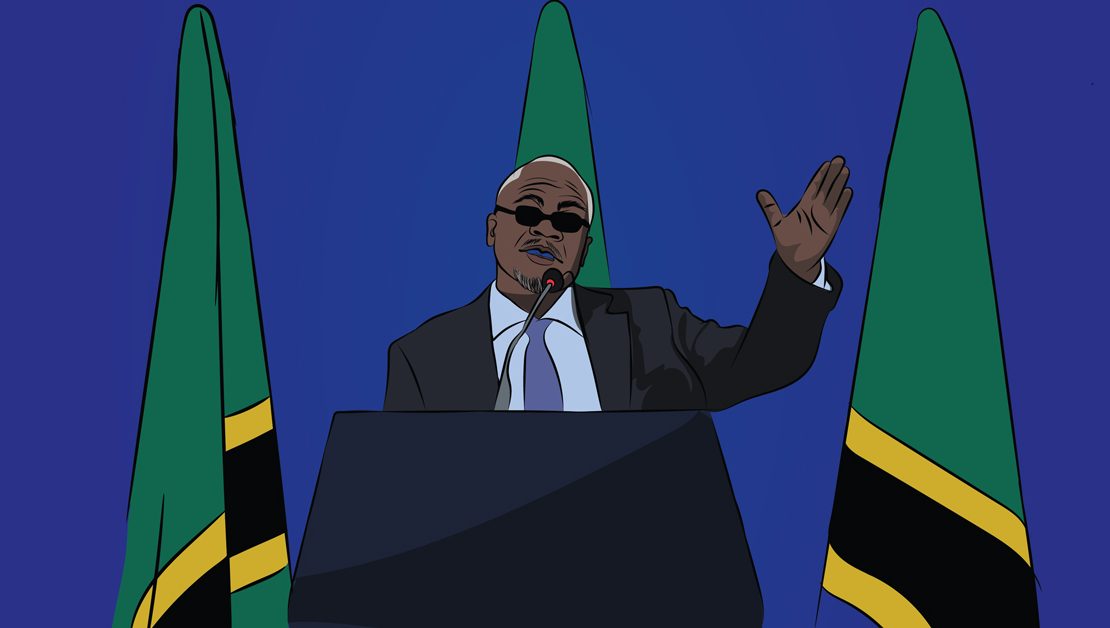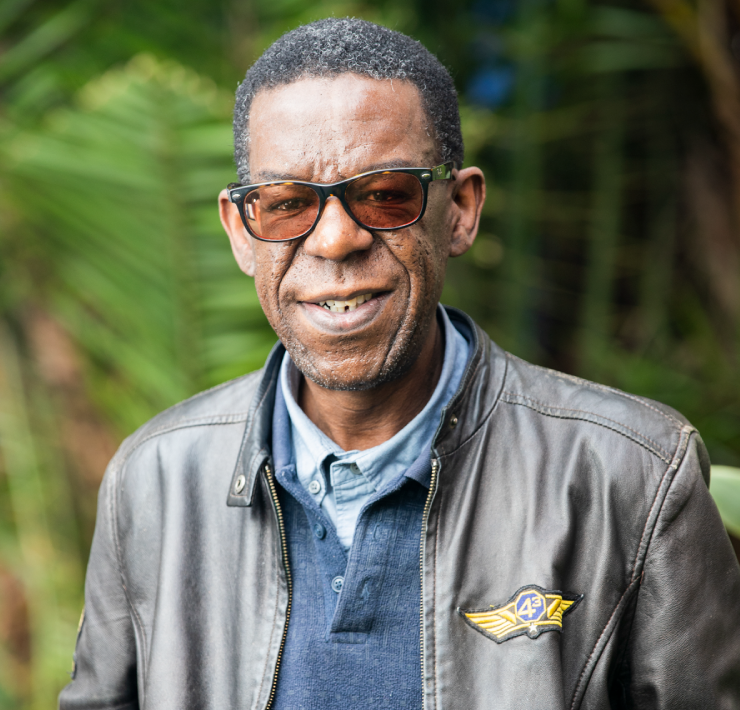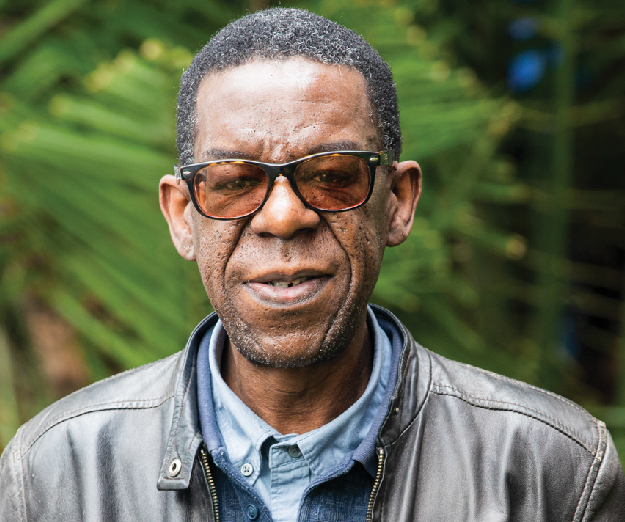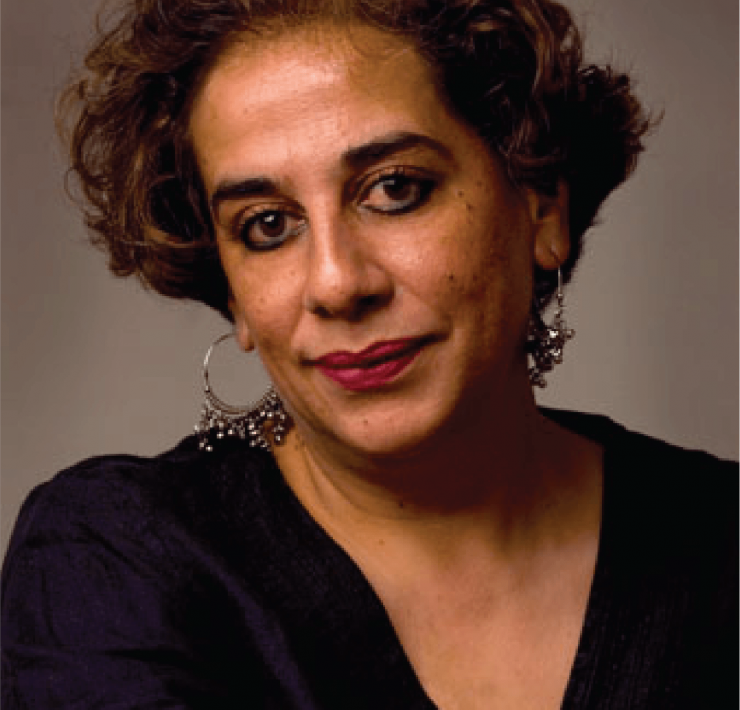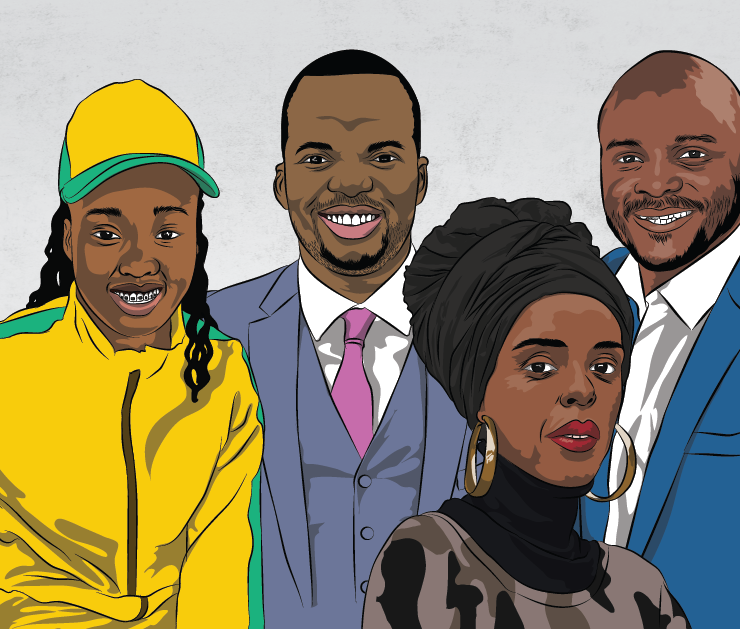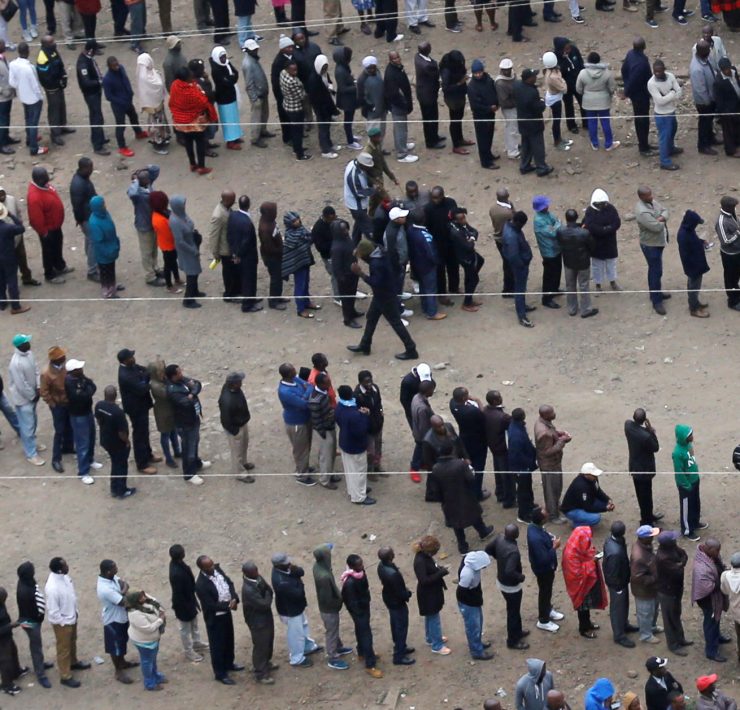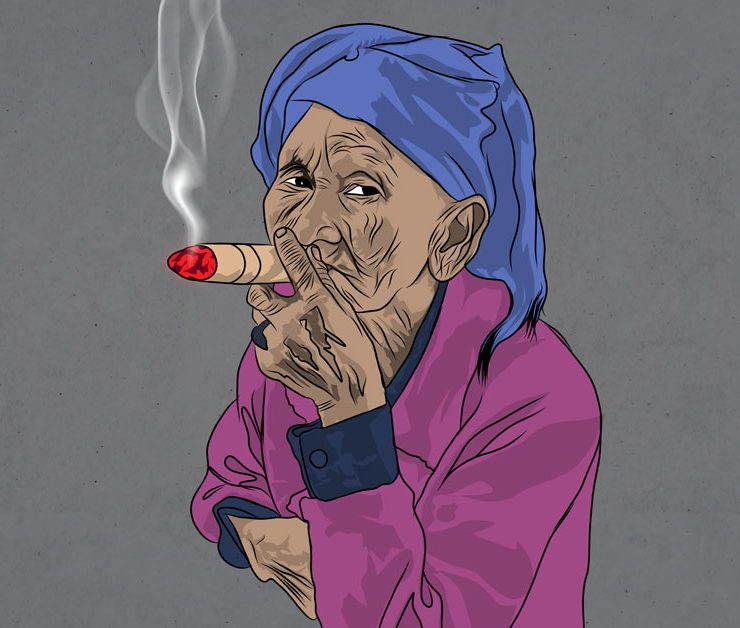John Pombe Joseph Magufuli’s political story — especially to non-Tanzanians memorializing him — starts in June 2015 when the country’s independence party Chama Cha Mapinduzi (CCM) met to nominate a presidential candidate for the October elections. The race was between a less popular Magufuli and a more endearing Edward Lowassa, who had served as a Prime Minister for a three year period under the outgoing President Jakaya Kikwete. Lowassa and Kikwete didn’t part ways amicably. Accused of partaking in corruption in 2008, Lowassa and his sympathizers pushed back, resulting in fractures within the CCM. Kikwete’s supporters vilified Lowassa and eventually forced him to resign.
Magufuli was a long serving party loyalist. He worked as an Assistant Minister in Benjamin Mkapa’s government and was elevated to a substantive minister by Jakaya Kikwete. As the Kikwete-Lowassa anti-corruption tussle ensued, Magufuli chose to play safe by not supporting either side overtly. That neutrality paid dividends later on.
The dilemma for CCM was that Lowassa was a polarizing figure while Magufuli wasn’t particularly charismatic. Little was known of Magufuli politics or ideologies. Beyond presiding over ambitious road expansion programs as Minister of Works, Transport and Communications from 2000 to 2005 and 2010 to 2015, Magufuli was largely considered an outsider.
The 2015 CCM presidential nomination stood out since for the first time, a former president, Mkapa, alongside a select group of elders, were charged with the responsibility of advising the party’s Central Committee on who to back for the presidency. It is whispered that Mkapa and other stalwarts — people Kenyans on Twitter (KOT) would call “deep state” — quietly pushed for Magufuli’s nomination.
In a divided party — with pronounced Kikwete versus Lowassa infighting — Magufuli became the compromise candidate for the CCM. After 20 years in the civil service as a Minister, Magufuli was untainted by corruption. He rode to a surprise victory during CCM presidential nominations with an overwhelming 87% of the vote.Some speculated that Lowassa’s supporters had backed Magufuli because he was a weaker candidate, one that the stronger Lowassa would trounce if he defected and vied against the ruling party candidate. Samia Suluhu Hassan, an outsider like Magufuli, was chosen as the running-mate.
Writing about what to watch out for in the most competitive election in Tanzanian history in the in the days leading to #Uchaguzi2015, Omar Mohammed observed that “it has been the most vibrant campaign season since the onset of multiparty in 1995” and that a question for the electorate was “whether to give the ruling party Chama Cha Mapinduzi another term in office or vote in the opposition for the first time in the country’s history.”
Both candidates were promising change.
Magufuli won the election with 58.46% of the vote. Lowassa, vying under the Chadema Party, got 39.97%. He rejected the official results, accusing the National Electoral Commission (NEC) of falsifying tallies: “We refuse to accept this attempt to rob the citizens of Tanzania of their democratic rights, which is being done by the National Electoral Commission by announcing results which are not the actual results and that are intended to take away our victory,” he said. “We are requesting that the National Electoral Commission announces that Edward Lowassa is the winner of the presidency of the United Republic of Tanzania.”
The Chadema tally gave Lowassa a victory with 62% of the vote.
This was the fiercest election the CCM had faced after 54 years in power.
The Bright Side of the Bulldozer
John Pombe Magufuli became Tanzania’s fifth president on November 5, 2015.
Hitting the ground running, Magufuli promised to reduce wasteful spending. He did. He said he would reduce corruption in government. He did. The post-inauguration period was awash with #WhatWouldMagufuliDo hashtags as citizens, inspired by their new leader, joked about the austerity measures they were embracing in their lives.Public confidence shot through the roof. The Bulldozer was working.
Magufuli’s competence was the talk of town, home and abroad, with one of his signature infrastructure projects — the Tanzanian Standard Gauge Railway — snaking through the country to the adoration of citizens. Kenyan media mourned that Tanzania was building an electric rail at half the price of Kenya’s diesel SGR line. Ubungo Interchange, Mfugale Flyover, Kigongo-Busisi Bridge, Dodoma Bus Terminal, Gold Refinery Plant — Magufuli’s name was weighed on the tongue with great pride.
Most Kenyans harboured mixed feelings. They didn’t know whether to hate or praise. Magufuli was doing all the things they wished their government did. The transparency in public infrastructure projects that Magufuli normalized was a pipe dream in Kenya, where big money contracts were kept under wraps.
Magufuli’s pursuit of accountability ensured all projects were completed on time and within budget. He was ruthless with cartels, cutting off government waste and grandiose and telling China off with its one sided structuring of infrastructure loans.
Magufuli cancelled a $10 billion loan his predecessor, Jakaya Kikwete, had signed with China Merchants Holdings International to build a port in Bagamoyo. The groundbreaking took place in 2015 but by 2019 the project had stalled raising questions about the terms and viability of the loan. Magufuli cancelled the loan. He explained to Tanzanians that “They want us to give them a guarantee of 33 years and a lease of 99 years, and we should not question whoever comes to invest there once the port is operational. They want to take the land as their own but we have to compensate them for drilling construction of that port.”
“Only a drunkard would accept these terms,” Pombe added.
With China luring African leaders with the promise of $60 billion in investment, aid and loans, Magufuli stressed his preference for condition-free Chinese-aid, as opposed to European-aid that came with strings attached — the insistence that Tanzania could only receive aid when it implemented certain policies. Denmark suspended $9.8 million in aid because of “unacceptable homophobic comments” by a Tanzanian politician. The World Bank put on hold a $300 million loan for an educational project in response to the government decision to expel school girls who became pregnant.
In 2015, as Maguli’s onslaught on corruption and political patronage networks began, in Kenya, the Jubilee government was entering its most corrupt epoch. The 2015 Corruption Index published by Transparency International ranked Kenya as the most corrupt country in East Africa, beating Uganda, Tanzania, Burundi and Rwanda. Kenya was ranked 139 out of 167 countries.
In 2016, when Magufuli’s anti-corruption credentials were shaping his legacy, in Nairobi, a hairdresser was at pains to explain how $18m from the National Youth Service — a government agency — arrived in her bank account. The entire scandal is believed to have cost Kenyan taxpayers a whooping $78m in payments to ghost suppliers. When the details became too much in the media, meaning details began touching who is who in power, the investigations and prosecutions were shelved and the files stored in the farthest locker in the Judiciary and keys deposited at the bottom of the Indian Ocean.
The Dark Side of the Bulldozer
At some point, there was an avalanche of negative press about Tanzania in Kenyan media. Typical nationalistic propaganda and envy, I thought, or maybe it was the relatively high level of media freedom in Kenya allowing them to report things Tanzanian media was unable to.
To write about a leader of a different country is to adopt a lens of an outside observer. You lack the benefit of direct experience. Information reaches you after it has been filtered, so that the most reliable bits and pieces are often direct speeches — what a leader says before it is interpreted by media lenses — or interviews and reports by those living in, or operating inside the country.
In hindsight, perhaps Magufuli was a deft player, laying positions, hedging on a long political game. Perhaps the bulldozer moniker, honed over 20 years as a Cabinet Minister, was a “dictator” by another word, its impact unfelt during his ministerial years because of the limited authority. Once he assumed the presidency and chaperoned the party to his bidding, Magufuli began exercising blunt force.
While the first half of Magufuli’s term epitomized servant leadership and a zero tolerance to corruption, the second-half unveiled the other side of Magufuli — the dark one.
Tanzania was always a country with good-mannered politics, holding free and fair elections as the press enjoyed freedom to hold government to account. This could be because CCM was always dominant, a state of affairs which changed when Lowassa defected to Chadema, prompting Magufuli’s bulldozing tendencies to become noticeable.
Magufuli began suppressing dissent, sliding into full blown authoritarianism. Tanzania, hitherto lauded for its democratic space, was rolling back the gains. Tanzanians lost the ability to criticize the president. In September 2016, five people were charged under the new cybercrime law for comments made against the president on social media platforms. This followed an earlier case in June, where a 40-year old man in Arusha was sentenced to three years in prison and a fine of TSh 7 million ($3,190) for insulting Magufuli on Facebook. On June 21, Leonard Mulokozi was charged for insulting Magufuli on Whatsapp.
The ‘insult’ was: “Does this mean Magufuli doesn’t have advisors? Is he unadvisable? Or is he just a fool? He’s foolish, this fellow. He doesn’t consider the applicable laws before opening his mouth. Or does he suffer from an illness like that of [member of parliament] Mnyika?”
He curtailed press freedom, characterized by fines, threats, and shutting down media houses over any reporting disagreeable to the government. Five TV stations were fined Tsh 60 million ($27,000) in January 2018 for “offensive and unethical” broadcasting. The five stations were Star TV which was fined Tsh7.5 million ($3,375), Azam Two (Tsh7.5 million, $3,375), East Africa TV (Tsh15 million, $6,750), Channel 10 (Tsh15 million, $6,750) and ITV (Tsh15 million, $6,750). The “offensive and unethical” broadcasting, according to the Tanzania Communications Regulatory Authority (TCRA) content committee chairman Joseph Mapunda was airing a Legal Human Rights Centre (LHRC) evaluation of November 26, 2017 ward by-elections. LHRC evaluation detailed human rights violations, abuse of power by security organs, abduction of innocent citizens and threatening of voters. The government viewed such an evaluation as offensive, unethical, and unlawful seditious broadcasting that threatened public peace and safety.
Journalists were also jailed and musicians forced to sing inane praises or face censorship. In 2017, rapper Emmanuel Elibariki was arrested for a song deemed insulting to the government of Tanzania.
Political persecution was commonplace, with the opposition bearing the brunt. In February 2018, a Chadema Party member of parliament, Joseph Mbilinyi, and a local party leader, Emmanuel Masonga, were sentenced to five months imprisonment for using abusive language against the president at a public rally. Reports of opposition supporters being arbitrarily arrested, jailed, or disappeared increased. Nairobi became a safe haven and passageway for opposition figures fleeing to Europe or seeking treatment for gun wounds. Opposition chief whip Tundu Lissu was arrested six times in 2017 over his “List of Shame”, a document he published detailing the plunder of public funds by state officials. Lissu was arrested for insulting the president, for calling Magufuli a “petty dictator” and disturbing public order.
On September 7, 2017, Lissu was shot and seriously injured by unknown assailants in the parking lot of his parliamentary residence. He was rushed to Dodoma General Hospital for emergency treatment, but fearing for his safety, he was airlifted to Aga Khan Hospital in Nairobi Kenya, where he battled for months.
By mid-march 2018, Lissu had undergone 19 surgeries. He thereafter fled to Belgium for further treatment and rehabilitation, and exile.
The elections of 2020 were characterized by state-sponsored violence. Police shot at citizens amid unrest over alleged electoral fraud, as the internet was shut down to manage the flow of political information. In the semi-autonomous region of Zanzibar, the ACT Wazalendo presidential candidate, Maalim Seif Sharif Hamad, was arrested at a polling station as he waited to vote, detained and released hours later. In response to police killings in Zanzibar, the Urban West Regional Commander, Awadhi Juma Haji, told reporters that some people were hurt by the police “accidentally” but “there was no casualty”. A statement, #ZanzibarLivesMatter, by ACT presidential candidate released on October 27, 2020 on Twitter listed the names of three people killed and nine people injured with live ammunition at Kigangani village, in Ole constituency, Pemba in Zanzibar.
The COVID-19 Nightmare
President Magufuli approached COVID-19 with his newly acquired disdain.
Suited as a contrarian, the holder of a PhD in Chemistry deserted the path of science and opted to shoot darts in the dark with populist, religious and pseudoscientific interventions.
Some of those who had devalued accusations of dictatorial tendencies made a shift and openly criticized Magufuli and Tanzania’s handling of COVID-19, a strategy which was consistently exposing East Africa to the possibility of a long-term confrontation with the virus.
The series of absurd acts as performing tests on paw paw fruits and goats, ludicrous anti-vaccine statements and open denial of the existence of the virus threatened to throw East Africa back to the late 80s to mid-90s when Sub-Saharan Africa’s reluctance to deal with HIV/AIDS led to the region having the heaviest HIV/AIDS burden in the world. History was replaying itself.
For a host of complex reasons, Africa has been the least affected by COVID-19, but there is a probability that after the developed countries have wiped the virus off their populations, the kind of containment strategies adopted by the likes of Magufuli or the poor adherence and compliance in countries such as Kenya will become the gateway through which COVID-19 would become endemic in Sub-Saharan Africa.
Magufuli’s strategy threatened the success of national efforts in disease testing, management, and surveillance. East Africans have traditionally shared disease surveillance data on infectious diseases. The COVID-denial do-nothing-strategy God-will-protect-us against COVID-19 left his people in an uncertain place, and forced healthcare professionals to toe a line that completely went against ethics and standard practices, just to keep their jobs.
While data from other countries showed the massive failure of the populist mass COVID-19 denial approach, in terms of number of infections and deaths, Magufuli shut down all health interventions, from mass testing to disease surveillance , and even lately to the possibility of giving Tanzanians access to vaccines.
It was a simple strategy: if you don’t test it, you don’t count it, you don’t have it. All COVID-like complications and deaths were bundled together as pneumonia or respiratory illnesses and a gag put on citizens. The government ensured that no Corona talk was tolerated. The crackdown on public messaging and social media was intensified, with Magufuli prescribed steam inhalation, malimau, tangawizi and doing press ups as remedy for those with flu-like symptoms.
Magufuli had dug an anti-COVID hole and didn’t have the humility to climb out. But after a number of high profile deaths in his government, the president softened his stance, albeit too late in the day.
For a leader whose earlier political life was a celebration of honesty, transparency and accountability, Magufuli’s death has been the opposite. Questions hang over basic facts: Where did he die? When did he die? What killed him? The arrest of anyone attempting to question or speak up over the matter further sowed distrust. Tanzanian news outlets couldn’t publish much about their leader’s whereabouts, beyond “we urge you to stay calm” and threats to the citizenry. Magufuli died under the shadow of darkness he had created.
The Post-Magufuli Era
John Pombe Magufuli is dead. A sudden, perplexing loss to the nation and region. His seat is now occupied by Samia Suluhu Hassan — a soft-spoken Muslim woman thrust from the obscure role of Vice President to become the country’s first female leader. Under the constitution, President Hassan will serve the remainder of Magufuli’s second five-year term which expires in 2025. She has the option of running for another term.
She began her political career in 2000 in her native Zanzibar, before moving to the Tanzanian mainland where she was elected to the National Assembly and assigned a senior position in a ministry. The country’s first-ever female vice president, has now become the first female president. She will consult the CCM on who to appoint as the new vice president. Observers are keenly watching the transition. The big question is whether she will lean towards the bulldozer’s bright side or ride the bulldozer into the dark side.

